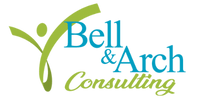What Outcomes Do You Want from Your College Experience?

Last week, at the Independent Educational Consultants Association (IECA) Fall Conference, I had the opportunity to hear from Dr. Anne Kerr, President of Florida Southern College. Dr. Kerr’s talk focused on the outcomes that colleges measure to gauge the efficacy of their programs. She mentioned some of the things you would expect – retention rates, average starting salaries, and the percentage of students who successfully matriculate to graduate school. I certainly understand why colleges track these metrics. It provides them statistic to give to donors and potential students that neatly sum up success.
Her talk made me start thinking. We know what is important to colleges to measure when they speak of outcomes to potential students, but what is more important to me and what should be more important to you is this question. What are your personal goals for college and how are you going to measure your personal success? College is a huge investment of your time and money, so you should know what you want in return for that investment.
I see and advise far too many students who consider college to be their end goal. Let’s think about that for a minute. If college is your end goal, does that mean that all personal growth and achievements end when you are 22 or 23 years old upon graduating from college? My guess is that your answer to that question is no. In fact, my hope is that your answer there is no.
So, if college is not the end goal, and you want even more from your life, maybe it is time to consider college a step in your journey to a life well lived. When you shift your thinking about the place college has in your larger life journey, it provides you the space to deeply consider what you want from your college experience.
There is a lot of talk in certain education circles of the ROI of a college degree. For those who haven’t taken college accounting, ROI is return on investment. Colleges measure ROI based on the starting salaries of their graduates. There has been much talk in the media on the ROI of certain colleges and certain degrees. Just this month, the Wall Street Journal ran a feature on the University of Southern California and their social work master’s program which has a price tag of $155,000 for the degree. Graduates of the program are earning $52,000 a year or less. WSJ tagged this as a very poor ROI. In this case, students were not generating enough income to make a dent in their hefty student loans. My question for you is – is the cost of the program and the amount of income you will have as a graduate of the program the only metric you care about in your college search?
My guess is that while managing student debt is an important consideration (and definitely should be) for most students, their vision of college is much more robust than their starting salary upon graduation. Students who enter the college admissions process who have a strong sense of their goals for their college experience are primed for a very successful college search because they know what they want and expect from every school on their list.
I’ve collected a group of outcomes for you to consider as you prepare for your college search (and guess what, even if you are a senior this year or already in college, you can still drill down and consider what you hope to gain from college and begin right now taking steps to ensure that you reach these goals). This is not an exhaustive list – and I encourage you to think deeply and consider how you might expand it. Every student should have at least 2-3 key things they want to achieve in college and a plan to reach those milestones. (And sure, if ROI is one of those outcomes, I’m onboard with you. Keeping college expenses in check is one of the best things you can do for your future self.)
Let’s start with one of my favorites that a college education can do for a student – expanding your view of your community, nation, and world. I know that it sounds lofty but stepping out of your high school world and hearing the outlooks of others and seeing new things can expand your worldview. But this concept doesn’t have a handy way to measure outcome, or does it? What if you set a goal for yourself that you will take one course on a topic that you know little about to challenge yourself to think bigger and to also participate in one study abroad opportunity to a country you have never visited. Now, you have something measurable. You know if you have taken a course that challenges you to think about the world in new ways, and you can certainly check the box upon completing a study abroad opportunity.
Consider this important outcome from college – developing confidence in your skills and knowledge and self-assurance that you can take what you have learned out into the world. This one also seems on the esoteric side, but what if we brainstorm ways that you might make sure this happens? You could make a goal for yourself to participate in one service-learning course while you are in college (or two, or three). These courses combine volunteer work in the community with the curriculum in the classroom. For instance, when I was an instructor at the University of South Carolina, I taught several service learning courses on food ethics in my themed freshman English classes. My students read about, discussed, and wrote about many aspects of our country’s food systems and then volunteered at the local food pantry as part of the grade requirement for the course. This allowed my students real world experiences incorporated into their college work and gave them confidence that their skills and knowledge are meaningful in the community. Another way to give your new skills learned in college a test-run is to participate in an internship. Most schools have a career center to help their students find appropriate internships.
Have you ever wondered about aardvarks, did a Google search, and then went down a rabbit hole of learning about the aardvark’s eating habits, habitats, and traits? Well, maybe not an aardvark, but I bet you have wondered about something and used the power of the research tool that many of us carry in our back pockets – our cell phones – to learn more. This is natural curiosity combined with the joy of learning. College is an excellent place to develop or expand upon your curiosity and love of learning, and it can be a great outcome of your college experience to leave with the idea that you are always learning. How might you do that as a college student? I suggest you take a class or two in a topic that just interests you. It shouldn’t be in your major, but instead it should be something you just want to know more about. Consider joining a club or two on campus that will afford you a new experience. Campuses typically have dozens of clubs – maybe you want to learn more about birdwatching or fly fishing – there is likely a club for that. Take advantage of the fact you are surrounded by people from all over the US and likely from all over the world. There is much to learn from sharing experiences with this diverse group.
College is not your final destination and understanding what you – that unique, interesting, and wholly individual person that you are – really want to achieve from your college experience will help you populate your college list with schools that are the perfect fit for you and worthy of the investment of your time and money. I’ve given you a few things beyond launching you on your career path (and, yes, college should do that too) to consider as goals for your personal college experience. I bet you can come up with even more things you plan to accomplish in your four years of undergraduate studies.
The most successful college students have considered their goals for college, chosen schools that will allow them to reach their goals, and enacted their college plans as soon as they arrive on campus. I challenge you to take the time to know the ways you wish to grow from your college experience and then find the schools that will provide you the tools that you need to reach all the outcomes you desire. At Bell and Arch we can work with you to determine your goals for your college experience, and I will be with you through your first semester of college to ensure you have a strong foundation to reach your goals.
Apply thoughtfully,
Jen
